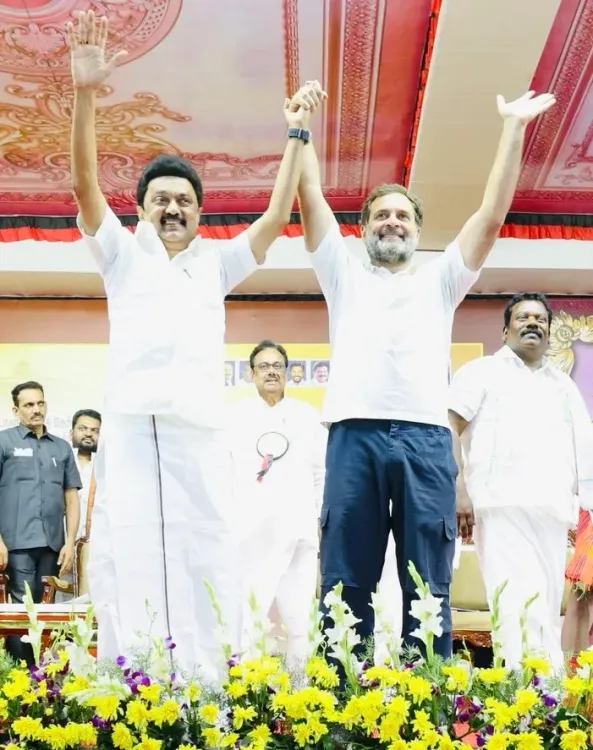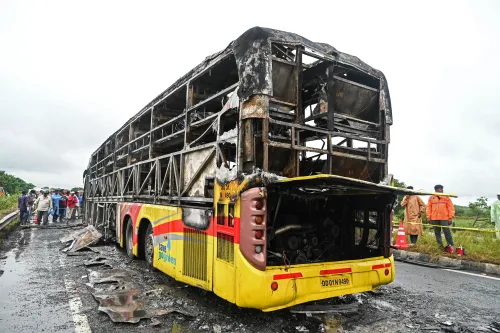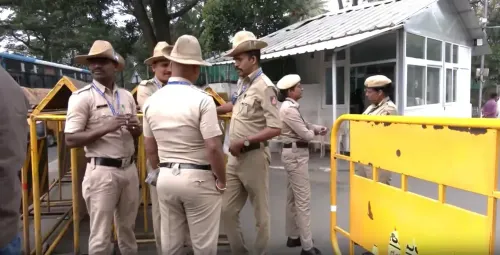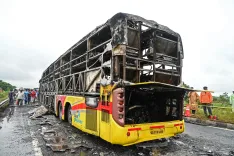Did DMK Compromise Democratic Values by Aligning with Congress?

Synopsis
Key Takeaways
- Political Opportunism: DMK’s alliance with Congress raises questions about its commitment to democratic values.
- Historical Context: The Emergency remains a significant event that shapes current political narratives.
- Family Rule: The prominence of dynastic politics in DMK undermines democratic principles.
- Constitutional Rights: The BJP emphasizes the importance of safeguarding constitutional rights and freedoms.
- Public Awareness: Citizens are encouraged to reflect on the implications of political alliances.
Chennai, June 25 (NationPress) Tamil Nadu BJP leader A.N.S. Prasad launched a sharp critique of Chief Minister M.K. Stalin and the DMK for their ongoing partnership with the Congress party, labeling it a betrayal of democratic values and an oversight of historical injustices.
Prasad charged that the DMK is engaging in political opportunism by aligning with the same party that once enforced the Emergency and subjected its leaders to severe oppression.
In a strongly articulated statement on Tuesday, the party representative emphasized that the Emergency, enacted by the Congress administration under former Prime Minister Indira Gandhi, was “a blatant assault on democracy,” characterized by the repression of dissent, mass detentions of opposition figures, media censorship, and significant breaches of constitutional rights.
“It is profoundly ironic that the DMK, which endured significant hardships during the Emergency -- including the loss of leaders like Mayor Citti Babu while in custody -- has opted to ally with those accountable for that suffering. Stalin’s collaboration with the Congress, the originators of the Emergency, reveals the DMK’s opportunistic political maneuvering and diminishes its moral credibility to advocate for democratic principles,” Prasad stated.
He also criticized the DMK's governance style, claiming it is permeated by nepotism and dynastic politics. “From Udhayanidhi Stalin’s rise to Deputy Chief Minister to the sustained roles of Dayanidhi Maran and Kanimozhi in Parliament, the DMK has transformed into a textbook example of family rule. The legacy of former CM Karunanidhi has devolved into a dynasty, not a democracy,” he added.
Prasad highlighted that the Congress party not only breached democratic norms during the Emergency but also exhibited disregard for Tamil Nadu’s autonomy by disbanding the DMK government at the time.
“It was not merely about silencing the opposition; it was about dismantling federalism and infringing on state rights. Yet, the DMK seems to have overlooked this grim chapter for political expediency,” he remarked.
The BJP spokesperson further questioned the DMK’s silence regarding the atrocities of the Emergency. “How can the DMK rationalize its alliance with a party that once imprisoned its own leaders and enforced censorship? The citizens of Tamil Nadu must ponder whether the DMK champions democracy or merely seeks power,” he asserted.
Prasad welcomed the Central government’s decision to commemorate June 25 as Samvidhan Hatya Diwas (Constitution Murder Day) to observe the anniversary of the Emergency. “It is a deserving tribute to the numerous victims who suffered during those 21 months. The day serves as a reminder that democracy must be guarded, not taken for granted,” he stated.
Recalling the contributions of the BJP’s ideological predecessors, he lauded the bravery of Jan Sangh and BJP leaders such as Atal Bihari Vajpayee, L.K. Advani, and Nanaji Deshmukh, who were imprisoned during the Emergency for resisting tyranny.
“They fought not just for themselves, but for the essence of India’s democracy,” he concluded.
In closing, Prasad reiterated the BJP’s dedication to protecting the Constitution and ensuring that the horrors of the Emergency are never repeated. “We will persist in upholding democratic values and educating future generations about the sacrifices made to defend the nation’s freedom,” he affirmed.









